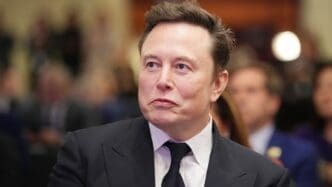Elon Musk and Vivek Ramaswamy are pushing to streamline government operations through DOGE, a new Department of Government Efficiency, announced after the recent Supreme Court ruling on federal regulations. They believe this ruling will enable them to cut down on federal spending. However, some legal experts question whether the Supreme Court’s decision will actually support their objectives.
Musk and Ramaswamy have proposed using the Supreme Court’s recent decision, which overturns the Chevron doctrine, to advance their goals of reducing government spending by limiting federal regulatory powers. The Chevron doctrine, established in 1984, allowed federal agencies to interpret vague laws to enact regulations, provided they aligned with Congressional intent. The new ruling mandates that courts, not executive agencies, resolve such ambiguities, potentially restricting agencies’ autonomy.
Despite Musk and Ramaswamy’s assertions, legal scholars argue that the end of the Chevron deference could impede DOGE’s mission. Columbia Law School’s Gillian Metzger noted that the ruling reduces executive power, potentially complicating efforts to reinterpret existing statutes to cut regulations. Nicholas Bagley of the University of Michigan echoed this, stating that while agencies under Chevron could adjust their understanding of laws to justify regulatory changes, the new legal landscape makes such adjustments more difficult.
The task of rescinding federal regulations isn’t straightforward. It requires compliance with the Administrative Procedure Act, which demands a rigorous rulemaking process involving public commentary and substantial justification for any regulatory changes. This poses a challenge for DOGE, especially if it proceeds with plans to reduce agency workforces, which would limit the availability of necessary expertise.
The undertaking also hinges on legislative support. While the Supreme Court ruling poses obstacles, a Republican-controlled Congress could bolster DOGE’s agenda by enacting supportive legislation. Bipartisan interest in government efficiency has emerged, with some lawmakers expressing willingness to collaborate on curbing spending in departments like Defense and Homeland Security.
Notably, public and legal scrutiny will remain high as DOGE’s initiatives develop. Legal analysts caution that any attempt by Musk and Ramaswamy to push through their agenda without solid legislative backing could result in legal challenges. Courts may be reluctant to abandon past decisions made under Chevron, and the burden of proof rests on those seeking to change regulations.
Ultimately, the fate of DOGE’s ambitious plans lies not only with the legal interpretations of the recent Supreme Court ruling but also with the political climate and legislative dynamics. As the situation evolves, it remains crucial for Musk, Ramaswamy, and their supporters to secure broader political and public consensus to advance their efficiency-driven reforms.
Although Elon Musk and Vivek Ramaswamy are optimistic about reducing government waste through DOGE, the recent Supreme Court decision overturning the Chevron doctrine may not facilitate their plans as anticipated. Legal and procedural hurdles, along with the need for legislative support, underscore the complexities involved in reshaping federal regulatory frameworks. As efforts continue, significant challenges remain in aligning judicial interpretations with their objectives.
Source: BusinessInsider








